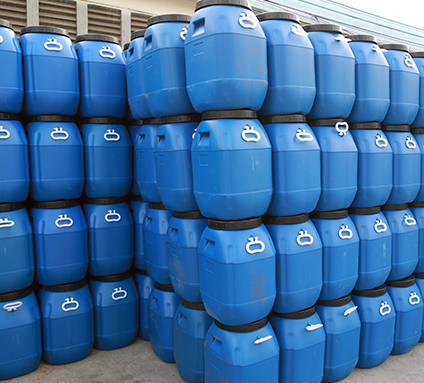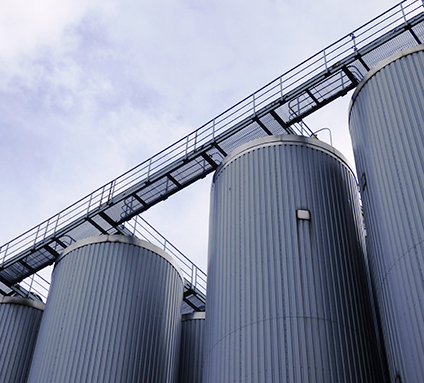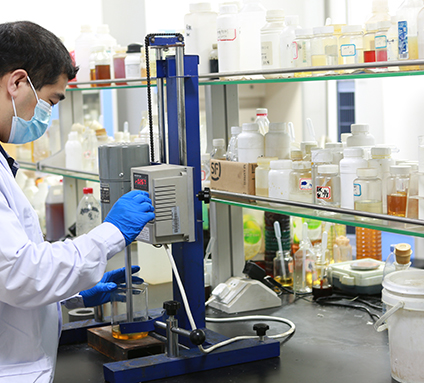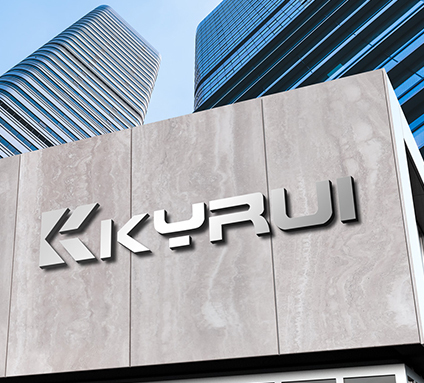





" With the wave of intelligence sweeping the world, the chemical industry has also ushered in new opportunities for transformation and upgrading. In this context, the training of industry +AI cross-type talents has become the key to the development of the industry. In June this year, the first national Chemical industry Artificial Intelligence Application Innovation Competition was officially launched, sponsored by China Petroleum and Chemical Industry Federation, and hosted by Huawei Technologies Co., LTD., Dalian Institute of Chemical Physics, Chinese Academy of Sciences, and Chemical Talent Exchange Labor Employment Service Center.
After 6 months, from 159 universities, 89 enterprises, a total of 394 teams, after fierce competition, finally in December 29, ushered in the finals. This competition is very special and representative, exploring an industry-specific AI talent training mode, different from the past AI competitions focused more on computer, programming and other issues and digital talents, this competition for the first time comprehensively focused on the application and talent training of AI and chemical industry integration.
Many excellent AI application cases have emerged in the competition, covering all aspects of chemical industry production, from raw material procurement, production process control to product quality monitoring, logistics distribution, etc., providing a wealth of practical reference and reference for chemical enterprises, and becoming an important way of intelligent innovation in the industry.
"The chance encounter with AI opens up unlimited possibilities for traditional engineering." The winning team of the first prize in this competition, He Changqing, a student from the School of Chemical Engineering of Tianjin University, said in his acceptance speech. Before that, what factors hindered the meeting of chemical industry and AI? Specifically, the gap between the chemical industry and AI technology comes from the lack of several aspects:
1. Lack of training ability. Alternate lines such as mountains, colleges and universities are still the core of the traditional chemical syllabus, the lack of chemical +AI courses, textbooks, teachers themselves are also experiencing the "pains" of AI start, it is difficult to quickly help students systematically start AI.
2. Lack of practical soil. The traditional model, such as the joint training of schools and enterprises, serves more topics, the integration of academia and industry needs to be improved, and the technical achievements are difficult to land in the industry, and the enterprises lack sufficient research and development capabilities and talents, and the industry application innovation is difficult.
3. Lack of exclusive stage. In the past two years, AI competitions, developer competitions, etc., are less involved in the chemical industry, unable to improve the training efficiency of AI talents in the industry, and need an exclusive stage focusing on chemical intelligence to activate the creativity of talents in the industry.
Let chemical industry and AI meet, a high-level, open competition, is undoubtedly a fast track. It can aggregate the power of production, university and research, put forward real problems from the industry, and let chemical students and chemical enterprise talents grow rapidly and incubate innovation.
Let chemical industry and AI meet, a high-level, open competition, is undoubtedly a fast track. It can aggregate the power of production, university and research, put forward real problems from the industry, and let chemical students and chemical enterprise talents grow rapidly and incubate innovation. The first national chemical industry artificial intelligence application innovation competition filled this gap.
Filling the gap between the needs of the chemical industry and the development of AI technology, the first thing that the competition needs to solve is to make the previous deficiencies "from scratch, from there to the best". To this end, the competition collects the real needs of the industry through the introduction of early resources, provides the necessary computing power, and paves the way for the two-way travel of talents and industries through the careful design of the competition mechanism:
1. Add resources. Huawei, together with Qingdao University of Science and Technology and East China University of Science and Technology, jointly developed a series of courses called "AI Empowered Chemical Industry", which also brought about the rising computing power to solve the practical difficulties of the lack of computing power in the training process of AI talents in colleges and universities.
2. Access scenario. The competition will bring the real common problems in the industry to the university competition, and crowdfunding will build a chemical +AI scenario application. The participating teams can not only solve the open competition problem, according to the theme and content of the competition, choose the chemical artificial intelligence scene by themselves, and provide the scene plan, but also accept the proposition of the head chemical enterprise released according to the real enterprise problems, combined with the real scene and data provided by the enterprise to develop and solve the problem.
3. Access the stage. In the setting of the competition schedule, it is especially encouraged to combine schools and enterprises, encourage enterprises and colleges to form mixed teams and complement each other's advantages. Give students the opportunity to be exposed to real working environments and changes, and stimulate talent's interest in the industry. For example, CNOOC Huizhou Petrochemical Co., LTD., Central South University, Shenzhen Liwei Zhilian Technology Co., LTD., together formed the "wisdom vanguard" team, giving full play to their respective advantages.
Chemical talents see their own works and achievements in the industry, will be full of sense of achievement, reduce the anxiety and confusion of traditional disciplines, and truly practice "AI line, strong line". According to statistics, the competition attracted a total of 394 teams of teachers/students from 159 universities and 89 enterprises across the country to participate in the competition, incubating 200+ chemical AI applications, identifying 100+ chemical scene problems, covering all aspects of chemical basic research and development to industrial applications, and rich and diverse innovation achievements.
It can be seen that a competition closely connects academia and industry, ivory towers and real scenes, chemical talents and AI technology. When tens of thousands of chemical talents come to the industry and come to unprecedented problems and challenges, they light the spark of intelligence in the industry. Judging from the entries, the AI debut of chemical talents is not only wonderful in solving problems and creativity, but also contributes real practical value to the industry enterprises.
The "Reborn I burn ceramics in China" team of South China University of Technology has used AI to enable intelligent optimization of building ceramic formula, improved ceramic formula, obtained the optimal raw material ratio of cost, and has significantly reduced cost and increased efficiency in Foshan Zhongtao Union pilot, and has achieved a series of results transformation, and won the third prize of this competition.
Cnooc Huizhou Petrochemical, a leading chemical enterprise in digital transformation, has a demand for overall intelligent optimization of the production process in its daily production and operation, so it has combined with Central South University and Liwei Zhilian to give full play to the respective advantages of production, university and research, and formed a "wisdom pioneer" team to tap the value of massive production data based on multi-stage generated deep learning technology. The intelligent optimization decision of the whole process parameters of the large-scale hydrocracking unit can help Huizhou Petrochemical save 79 million yuan per year (based on 22 million tons of annual refining), and the case also won the second prize of the competition.
The "Xunjin Stranger Road is often in" team of the School of Chemical Engineering of Tianjin University said in the acceptance speech of the first prize: expect AI to give traditional engineering a new future. The team used AI for the whole process of research and development of separated materials to solve common problems such as "difficult to start" in the field of research and development paradigm change. After multiple rounds of iteration from Xunjin 1.0 to 3.0, relevant technologies were successively applied to "three wastes" treatment, heavy heavy oil viscosity reduction, heavy oil-water emulsion demilking, etc., which brought a cumulative economic benefit of more than 500 million yuan for enterprises such as petrochina and Sinopec. Especially in the field of chip cleaning materials development, we achieved rapid research and development from "zero basis" to the whole process within 30 days, and the solution is highly innovative.
The special prize team of the competition, "Sinan Coal Gasification RTO", after nearly a year of exploration, completed a very challenging and complex topic - the world's first advanced control and real-time optimization integration system for pulverized coal gasification equipment. In the past, complex coal gasification equipment needed a very experienced master to do well, and the new hand was slow, error-prone, and the efficiency was low. To this end, Hangzhou Sinan Intelligent Technology Co., Ltd. cooperated with Yanyanhua, East China University of Science and Technology, Huawei and other parties, based on Pangu large model technology, built the world's first set of integrated information control and real-time optimization system, and handed the device to AI to operate, which has achieved good benefits and saved more than 10 million yuan for the factory every year.
It can be said that in the vast industrial scene, there are unexpected problems in the ivory tower, and there are unlimited sky for talents to display their talents. In addition to the above cases, there are hundreds of intelligent scenarios and chemical applications incubated in this competition, which not only allows chemical talents to temper their digital skills in actual combat, but also precipitated a large number of chemical AI assets and digital assets for the chemical industry. In the future, through large-scale replication, the spark of intelligent industry will have a prairie fire.
Through the contest, we will find that there are many intelligent subdivision scenes in the industry, the technical system involved is complex, and the working conditions and needs of different fields are also very different. Therefore, no enterprise or a university has the ability and conditions to independently complete the intelligence of all chemical scenes. The intelligent upgrading of the industry cannot be separated from an important condition, that is, the integration of production, university and research.
In recent years, policies on the integration of production, university and research have been intensively introduced, such as the Outline of the 14th Five-Year Plan, which clearly states that it is necessary to "form a technological innovation system with enterprises as the main body, the market as the guide, and the deep integration of production, university and research." However, in practice, how to use an efficient way to bring together the forces of academia, industry, government, industry organizations and other parties to break down the barriers between different roles? Effective means need to be further explored. And this contest is undoubtedly a successful exploration.
A contest can be the cohesion point of the integration of production, university and research, and also the transition point of industry intelligence, quickly narrowing the distance between traditional disciplines and AI, and the distance between industry and academia. From this competition, it is not difficult to see several changes in the chemical industry: first, the talent and the industry are closer; Second, consensus has been strengthened. Third, the opportunity space of industry intelligence has also been further opened up. For example, during the final, some teachers proposed that this competition is driven by interest, and the future can be driven by scenes and application needs, and enterprises can provide rich scenes, establish a unified scene library, and find solutions through the competition. In this regard, enterprises are also responding positively, such as Huawei joint Yunding Technology, East China University of Science and Technology, Qingdao University of Science and Technology, deep trend Technology, Nanjing Kaiosi and other chemical industry partners, in-depth Shandong Energy Group and other chemical enterprises affiliated chemical plants, jointly sorted out coal chemical industry, fine chemical industry and refining and other chemical fields artificial intelligence application scenarios, as many as 100. The future will be gradually landed.
So, the big game is the beginning, not the end. With the first chemical AI competition as the transition point, this key industry and traditional discipline of national economy and people's livelihood have jumped into the era of intelligence and radiate new vitality. The dazzling talent shown by new chemical talents is the spark of smart chemical industry in the future.
The references are from "polar body";
【Text tag】


10y+Industry experience

10000m²Production base

860+High-end customer case

35000tAnnual output